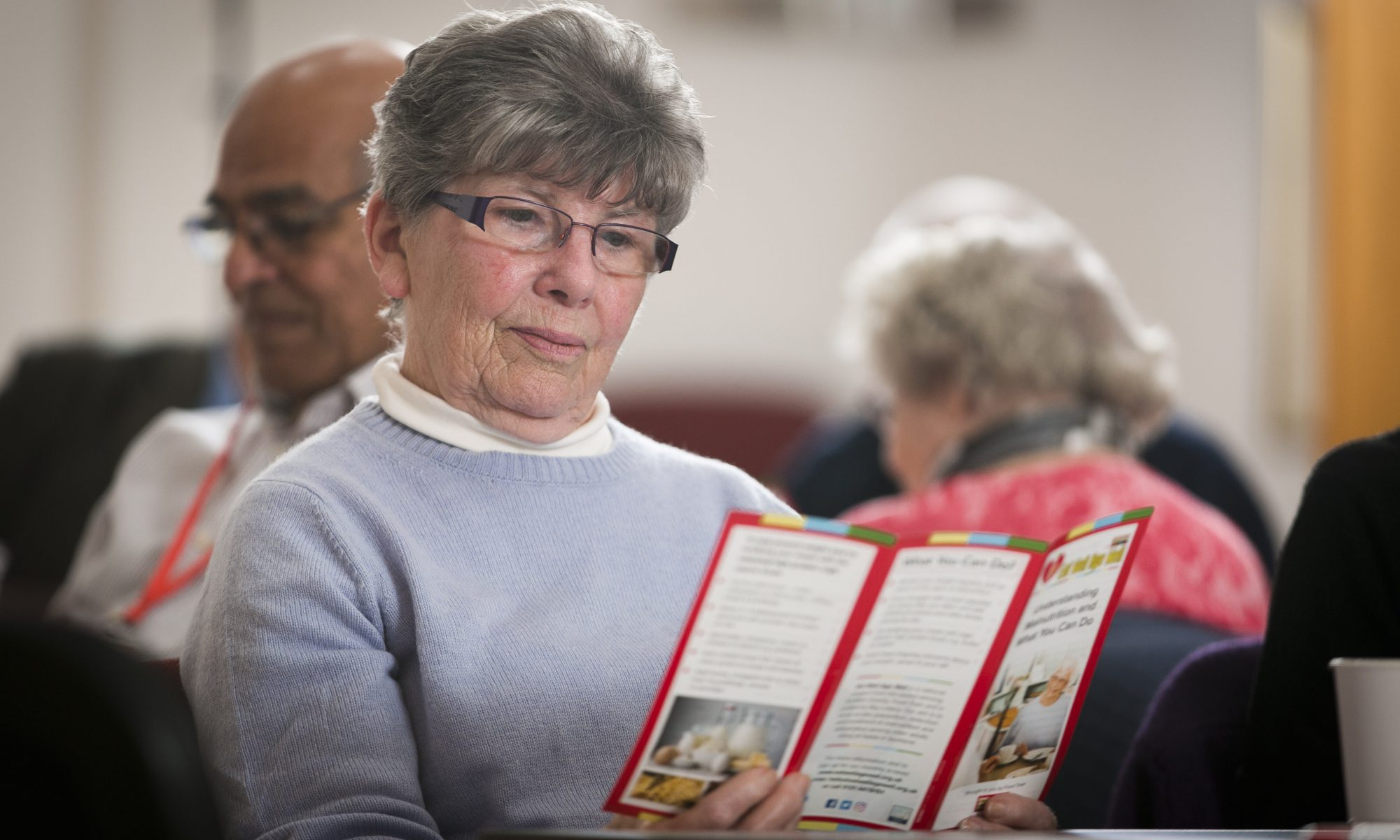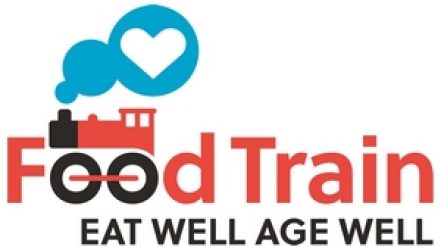#MentalHealthAwarenessWeek
Written by Innovations Officer, Gail Hutchison

We all know the importance of eating a nutritious, balanced diet for keeping our bodies in good health. Just like our other organs, our brains also need a variety of nutrients to keep our brains working and protect our mental health.
Challenges arise as we age, with many of us suffering from chronic conditions such as COPD, arthritis, type two diabetes, and dementia affecting how much we eat and drink. Similarly, common social risk factors such as the loss of a loved one can take their toll on older people leading to increased feelings of isolation and loneliness which in turn can lead to appetite loss, increasing risk of malnutrition.
The recent COVID-19 pandemic and the accompanying shielding restrictions have shone a light on the importance of nutrition and hydration, particularly amongst more vulnerable older adults living at home across Scotland. The closure of many social clubs has meant the loss a vital support system around provision of food. Not only this, but social groups such as lunch clubs also serve a crucial role in connecting individuals through enjoyment of food. Loss of this face-to-face interaction and social eating has meant a significant number of older people have faced new levels of social isolation and loneliness contributing to increased number of individuals facing risk of weight loss and malnutrition.

But how can we spot if someone is at risk of malnutrition? Perhaps you have noticed that a loved one has visibly lost weight, or their clothes, jewellery or shoes are now looser. Getting sick more often, suffering from recurring infections, bruising and dry cracked skin can also be an indicator that someone is not eating or drinking enough. As mentioned, suffering from poor mental health such depression of low mood can also be key contributing factors contributing to loss of interest or motivation to cook or eat.
With Mental Health Awareness Week now upon us (10th -17th May 2021), we now have the perfect opportunity to start the conversation around food, appetite and weight loss and the importance of this in supporting older peoples’ mental and emotional health and reducing risk of malnutrition. Approaching the topic of food can often be tricky, particularly if an older person is suffering from low mood. There are many ways to approach the conversation whether that be through discussing favourite meals, memories around food, asking about shopping or whether they have noticed any changes in their appetite. Building trust, chatting about food, and simply being listened to can help someone feel supported and less alone, and can often be the first step back to eating well.

To support older people at a time where in person contact has been challenging, Eat Well Age Well have launched our free confidential Malnutrition Advice Line, where older people concerned about weight loss can have a chat about food, appetite and challenges they may face around accessing, cooking, or eating food. Using the Patient Association Nutrition Checklist, the Eat Well Age Well Team can offer personalised evidence-based Food First Advice based on what an individual likes to eat and drink, supporting small and manageable changes in diet to help people return to a healthy weight whilst enjoying the food they eat. Individuals can also be signposted to relevant support services such as Meal Makers for social eating, Food Train for shopping support, Citizens Advice Bureau for financial advice or Age Scotland for befriending. We know that most cases malnutrition in older people in the community is both preventable and treatable. Through offering a person-centred approach through the Malnutrition Advice Line, can challenge the myth that losing weight is a natural consequence of old age, empowering individuals to take small steps to self-manage their diet and ultimately increase long term wellbeing.
The Malnutrition Advice line (0800 13 88 220) is open from 9am until 4pm on Mondays, Wednesdays and Fridays.
This is not an emergency line. People with immediate concerns about health and wellbeing should phone their GP or NHS 24 on 111.
The service is operating in all of Scotland’s NHS regions, apart from Tayside where a regional advice line is already established. Those living in Tayside can call the regional Get Nourished advice line on 01738 450556


